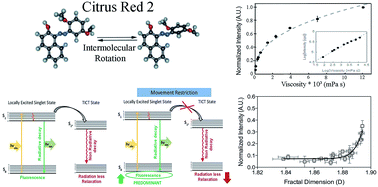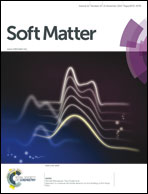Micro-viscosity of liquid oil confined in colloidal fat crystal networks
Abstract
Molecular rotors may be utilized as non-invasive, non-disruptive and highly sensitive alternatives to conventional measures of bulk viscosity when the oil is entrained in a colloidal fat crystal network. Oil viscosity changes based on the molecular confinement of the oil, which is dependent on its molecular volume. Changes in micro-viscosity were not dependent on the solids content, but instead were strongly dependent on the box-counting fractal dimension in high-space filling colloidal fat crystal networks (i.e., D > 1.89). A bulk oil viscosity is often an overestimation of the actual viscosity of the entrained oil and may not be appropriate when predicting diffusion in multi-phase materials.


 Please wait while we load your content...
Please wait while we load your content...